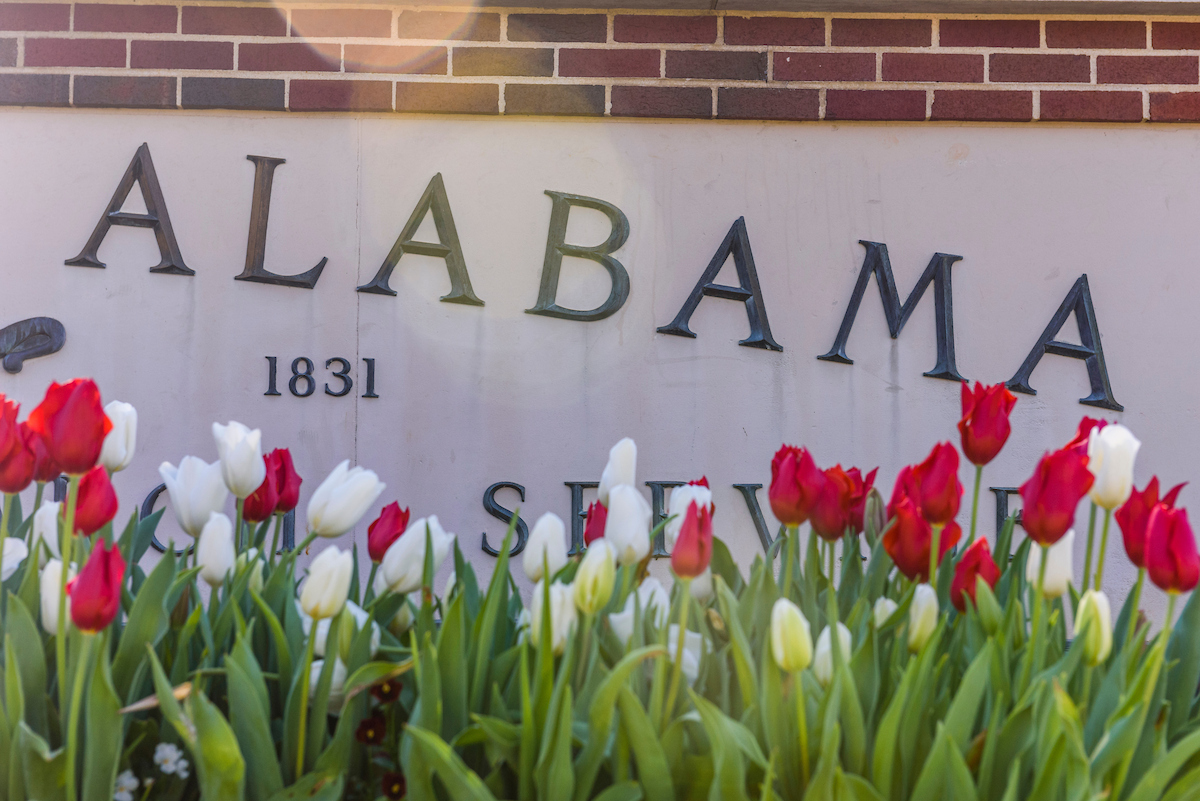Assessment Spotlight
Assessment Spotlight highlights the assessment processes of departments across campus as examples of excellent practice, emphasizing the benefits and importance of faculty involvement and the use of results in the assessment process.
Nursing MSN Curriculum Review
Fall 2019, no. 1
Curriculum review/revision is a periodic, collaborative process designed to maintain and improve the health of an educational program. It’s typically led by faculty who wish to examine the components of their curriculum and its collective impact on student learning. The framework and timeline of the review process may vary; however, it’s essentially strategic planning for degree programs.
UA’s Master of Science in Nursing (MSN) program recently initiated a curriculum review. Dr. Robin Lawson, who is facilitating the process, observed that its value depends crucially on the buy-in and participation of teaching faculty: “Let faculty be the drivers of change. Give them the resources and responsibility to be change agents.” The role of the College is to provide support, including a framework and time for the collaborative work.
Every degree program aims to produce graduates who are highly qualified in key skill/knowledge areas. For the MSN program, those key areas are the foundational disciplinary competencies established by the American Association of Colleges of Nursing (AACN Essentials). The competencies informed the guiding questions of the MSN curriculum review (e.g., Do our course learning outcomes and activities align with the Essentials? How are our students doing on competency-specific measures of learning?). Faculty used “crosswalk” maps to explore curricular alignment with national standards and perform gap analyses for the program and its concentrations.
Curriculum review is important for any educational program, but particularly so for programs with specialized accreditation given that (1) accreditors routinely revise their guidelines, and (2) curricula and courses evolve over time. As educators, we tend to innovate at the course level—for example, we inherit a course section/syllabus and iteratively adapt it to give students the best experience we can. Almost inevitably, that causes drift—certain program learning outcomes may gradually receive more or less emphasis across the curriculum than they once did. MSN faculty found variability by course offerings/sections, which meant that not all students were getting all “the same” core courses in terms of emphasized competencies. Predictably, not all students were meeting all skill-specific benchmarks.
The identification of such gaps is precisely why curriculum review is valuable. Based on their discoveries, MSN faculty have selected and refreshed five core courses to ensure coverage of key competencies across all students. Additional courses have been tweaked or created to ensure that students master concentration-specific learning outcomes. Another revision involves paired theory/practice courses: From now on, a student who has to retake one “companion” course will also retake the other. Dr. Lawson cited these as examples of empowered faculty strengthening the MSN program to help students succeed during and after their time at UA.
Spotlight Article Archives
If you’re planning to initiate a curriculum review, please contact OIE or explore general frameworks such as the examples below:
University Assessment Council
The University Assessment Council (UAC) includes representatives from the University’s Colleges, Student Life, and Libraries and is supported by the offices of Institutional Effectiveness and Institutional Research and Assessment. The UAC represents those entities that engage directly with students and are primarily responsible for student learning through direct instruction, student support, and/or academic support.
MEMBERSHIP
Jon Acker, Coordinator for Student Assessment | Office of Institutional Research and Assessment
Ross Bryan, Assistant Dean | Honors College
Joy Burnham, Senior Associate Dean | College of Education
Chris Coleman, Director | Office of Institutional Effectiveness, Committee Chair
Allison Curington, Director of Faculty Development | Office for Academic Affairs
Lucy Curzon, Professor of Art History and OAA Faculty Fellow for Assessment | College of Arts & Sciences
Andre Denham, Associate Dean | Graduate School
Barrett Elder | Office of Information Technology
Chelsea Fancher, UA Online Program Manager | OTIDE
Karri Holley, Associate Dean | Graduate School
Michelle Hernandez-Perez, Associate Director | Office of Institutional Effectiveness
Sara Kaylor, Assistant Dean of Accreditation and Evaluation | Capstone College of Nursing
Dione King, Associate Dean for Professional Advancement and Assessment | School of Social Work
Deidre Leaver-Dunn, Associate Dean for Academic Affairs| College of Human Environmental Sciences
Grace Lee, Associate Dean for Academic Affairs | School of Law
Joyce Meyer, Director of Assurance of Learning | Culverhouse College of Business
Caroline Parsons, Associate Professor | College of Communication & Information Sciences
Albert Pionke, Associate Dean of General Education and Academic Affairs | Barefield College of Arts & Sciences
Cecil Robinson, Associate Professor and Director of Learning Resources and Evaluation | College of Community Health Sciences
Shae Robinson, Director | Student Life Assessment & Planning
Tim Salazar, Director of Data and Analytics | Office of Teaching Innovation & Digital Education
Lance Simpson, Assistant Professor and Assessment Librarian | University Libraries
Rachel Thompson, Director | Center for Instructional Technology
Derek Williamson, Associate Dean of Undergraduate Studies | College of Engineering
Akeisha Young, Director of Accreditation and Assessment | College of Education






